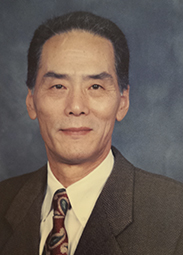For the last several months, I have been describing the difference between wetcleaning and laundry, the amount of water to use and the chemicals involved. This month, we discuss drying.
Drying is a very important part of wetcleaning. Drying won’t require as much process and effort as washing but it will definitely affect the finished quality. I find most of the cleaners I’ve met lack proper understanding for drying. I’ve seen people skipping the tumble dry process after hang drying. Those who complain wetcleaning makes finishing difficult obviously don’t understand proper drying procedure. Once you do, wet cleaned clothes should be as easy to finish as drycleaning.
Tumble drying after extraction or hang drying?
Wet fibers are weakened. That’s because the tension in the fiber gets relaxed when wet. Extraction alone won’t restore its strength and extended mechanical action of tumble drying will cause damage.
Rub wet wool fabric together and you’ll get pilling and shrinkage. Dark colored silk and cotton will show chaffing.
That’s why I recommend hang drying first to prevent these problems. Once most of moisture has been removed overnight, we can finish by tumble drying for a short period.
Of course synthetic fibers like polyester do not suffer relaxation when wet so you can tumble dry after extraction.
Drying temperature
All fabrics retain a certain amount of moisture. For example, cotton will hold about 8% moisture and wool, 13%. If you dry wet clothes at too high a temperature, fabric will lose its natural moisture and become rough. It’s especially bad for linen and cotton is no exception.
In my experience, drying at 50℃(122°F) protects fiber’s moisture. You can probably go up to 55℃(131°131°F) but you won’t be saving much time.
A lot of manufacturers have installed humidity sensor in their dryers but unless you have the same fabrics with the same thickness, it is not too effective.
Drying times
People always ask me this question but there is no one simple answer. Drying time depends on the amount of clothes, fibers, ambient humidity and so on.
Drying time after hanging will certainly be much shorter than normal drying, though. You will never have pressers waiting for the dryer in the morning. Since you’re drying at only 50℃, even extended drying time won’t hurt.
Furs often get stiff when the remaining moister is gone so make sure it’s dry in the dryer.
Before tumble drying…
It is very important clothes retain a small amount of moisture before tumble drying. This moisture will help remove small wrinkles and activate the conditioner.
I hear complaints that pressing takes longer during the summer. That’s because clothes are too dry and no amount of tumble drying will remove small wrinkles. If clothes feel too dry, spray some water. You don’t need to be even since moisture level will equalize in the dryer.
Hang drying clothes overnight won’t waste your valuable production time. In fact, it saves time. You can usually finish one load in less than 20 minutes. If you have the space, you can even do Same Day Service.
Proper drying will help improve your quality significantly. I hope this gave you a chance to review your drying procedure.

Yangsoo Kim
The author is the developer of Aqua Master wet cleaning chemicals and is currently operating Green Life Cleaners, a 100% wet cleaning service. You can contact him by phone (201) 699-7227 or email at yangkim50@gmail.com.

